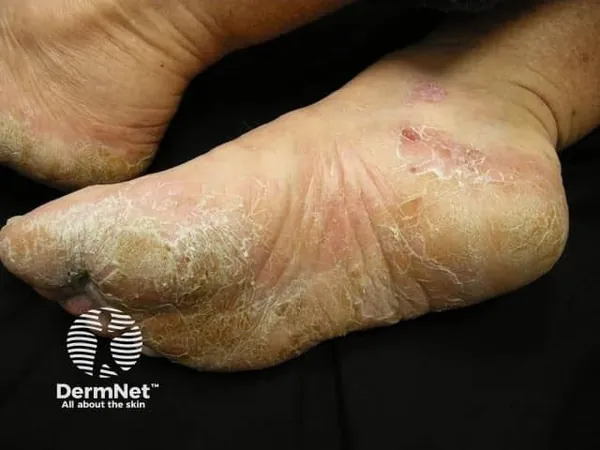
Groundbreaking Discovery: Biologics May Slash Cardiovascular Risks for Psoriasis and PsA Patients!
2025-04-03
Author: Daniel
Groundbreaking Discovery: Biologics May Slash Cardiovascular Risks for Psoriasis and PsA Patients!
Psoriasis and psoriatic arthritis (PsA) are chronic inflammatory conditions that not only affect the skin and joints but also significantly increase the risk of major adverse cardiovascular events (MACE). Recent research has illuminated the protective effects of biologic therapies compared to traditional nonbiologic treatments, revealing compelling reasons for patients and clinicians to reconsider treatment strategies.
A recent study featured in The Journal of the American Academy of Dermatology delves into a retrospective cohort analysis that assessed the relationship between these therapies and the incidence of cardiovascular events. Researchers concluded that biologic treatments not only manage psoriasis and PsA effectively but also provide crucial cardiovascular benefits. They emphasized that these therapies should be prioritized in treatment plans, particularly for individuals with a history of cardiovascular diseases or those at elevated risk.
Study Methodology
The research involved an extensive retrospective cohort study of patient records, focusing on those diagnosed with psoriasis or PsA who were prescribed either biologic or nonbiologic therapies. A comprehensive database was utilized to collect data on early signs of cardiovascular issues, such as myocardial infarction, stroke, and cardiovascular-related deaths, using advanced statistical models to account for various confounding factors.
Key Insights from the Research
The findings of this study uncovered several crucial insights:
- Reduced Incidence of MACE: Patients utilizing biologic therapies experienced a significantly lower occurrence of both new and recurrent MACE compared to those on nonbiologic treatments. This risk reduction was especially pronounced in individuals with pre-existing cardiovascular conditions.
- Inflammation and Cardiovascular Health: The research underscored the link between systemic inflammation and cardiovascular risk, with biologics showing superior results in lowering inflammatory markers associated with atherosclerosis—a major contributor to heart disease.
- Safety Profiles: While biologic therapies were found to decrease cardiovascular risks, nonbiologic treatments presented a neutral or even slightly elevated risk, likely due to differing mechanisms and side effects.
- Long-Term Benefits: Patients consistently adhering to biologic therapy over an extended duration showed an enduring reduction in cardiovascular risk factors, indicating benefits that extend beyond just managing skin and joint issues.
Clinical Implications
These groundbreaking findings hold significant implications for clinical practices, suggesting the need for a strategic approach in treating psoriasis and PsA:
- Customized Treatment Plans: Healthcare providers should take into account patients' cardiovascular risk profiles when choosing systemic therapies, tailoring treatment strategies to optimize outcomes.
- Targeting Inflammation: Given the ability of biologics to combat systemic inflammation, these therapies emerge as vital tools not just for managing psoriasis and PsA but also for safeguarding cardiovascular health.
- Importance of Monitoring: It’s essential that patients undergoing systemic therapy for psoriasis or PsA receive regular cardiovascular screenings to proactively address any emerging risks.
Future Research Directions
Despite the promising results, the study acknowledges limitations due to its retrospective nature, potentially introducing biases in data collection and patient selection. To further solidify these findings, future prospective studies and randomized controlled trials are essential for a deeper understanding of how biologic therapies confer cardiovascular protection.
Conclusion
In summary, this pivotal study highlights the significant link between biologic treatment for psoriasis and PsA and a decreased risk of major cardiovascular events when compared to traditional nonbiologic systemic therapies. It accentuates the necessity of integrating cardiovascular health considerations into treatment decisions and the urgent need for ongoing research to refine therapeutic strategies for individuals with chronic inflammatory conditions. Stay informed and keep your heart healthy while managing psoriasis!


 Brasil (PT)
Brasil (PT)
 Canada (EN)
Canada (EN)
 Chile (ES)
Chile (ES)
 Česko (CS)
Česko (CS)
 대한민국 (KO)
대한민국 (KO)
 España (ES)
España (ES)
 France (FR)
France (FR)
 Hong Kong (EN)
Hong Kong (EN)
 Italia (IT)
Italia (IT)
 日本 (JA)
日本 (JA)
 Magyarország (HU)
Magyarország (HU)
 Norge (NO)
Norge (NO)
 Polska (PL)
Polska (PL)
 Schweiz (DE)
Schweiz (DE)
 Singapore (EN)
Singapore (EN)
 Sverige (SV)
Sverige (SV)
 Suomi (FI)
Suomi (FI)
 Türkiye (TR)
Türkiye (TR)
 الإمارات العربية المتحدة (AR)
الإمارات العربية المتحدة (AR)